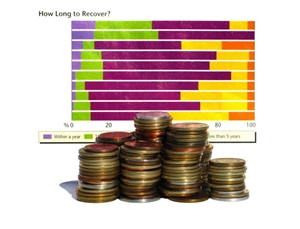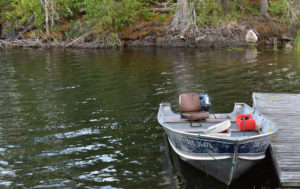 Creditor Claims in Minnesota Probate Estates
Creditor Claims in Minnesota Probate Estates
Minnesotas probate statute attempts to clearly delineate the rules for the administration estates.
The underlying purposes and policies of the probate statute are to simplify and clarify the law concerning the affairs of decedents, missing persons, protected persons, minors, and incapacitated persons, and to promote a speedy and efficient system for liquidating the estate of the decedent. Minn. Stat. 524.1-102(b)(1),(3). Although the goals are laudable, they do not reflect the reality that probate can at times be a messy affair. This is especially true when creditors enter the fray.
Minnesotas probate procedures arguably give way for unrelated parties to enter probate proceedings. For example, Minnesota permits certain persons from filing a petition for determination of descent in probate court. According to the statute, any interested person may file a petition for determination of descent when a person has 1) been dead for more than three years and 2) has left real property with no will. Minn. Stat. 525.31.
Minnesota Decree of Descent law
If a beneficiary or an heir is indebted to an unrelated party, Minnesotas decree of descent can be a vehicle for a creditor to make a claim on the estate. In re Estate of Pawlik, 845 N.W.2d 249 (Minn. Ct. App. 2014) is an example. In Pawlik, the decedents heir owed debts to a creditor who obtain a judgment lien against the heir. Id. at 249. The creditor petitioned the district court in Minnesota for a decree of descent on the estate. Id. The beneficiaries objected, maintaining the judgment creditor did not have standing under Minnesotas probate statute. Though the district court noted it was uncommon for a judgement creditor to use a decree of descent to seek payment, it was nonetheless proper. Id. at 250.
The Court of Appeals upheld the district courts holding. In the opinion, the Court of Appeals noted Minnesotas probate statute defines interested persons, who may file the petition, broadly. Id. at 251. Under the statute, interested persons are heirs, devisees, children, spouses, creditors, beneficiaries, any others having a property right in or claim against the estate of the decedent. Id. (citing Minn. Stat. 524.1-201(32). Even though the creditor held a judgment against the heirs and not the estate, the Court of Appeals determined Minnesota probate statute permitted all creditors from petitioning for decree of descent. Id. at 252.
Even when a person dies without a will, creditors may still initiate a claim to the estate. In In re Estate of Murray, 2016 WL 854724 (Minn. Ct. App., Mar. 7, 2016), a creditor attempted to attach a security interest on property bequeathed to a beneficiary that the beneficiary disclaimed. Although the Court of Appeals upheld the district courts refusal to vacate the disclaimer, the Court of Appeals agreed the creditor had standing to challenge, even in the face of a valid will. Id. at *2. The Court of Appeals noted the probate code offers, wide[] ground on which [the creditor] can establish standing. Id. at *3.
Expected beneficiaries and heirs of an estate must be aware of any debts they may have to outside parties. Pawlik and Murrays holdings suggest Minnesotas probate code may provide an avenue for creditors to access a persons estate. The probate code is complex, and those considering estate planning issues should contact a helpful Minnesota estate planning attorney for advice.
Free Initial Consultations
Contact the Flanders Law Firm today. The firm offers free consultations to all potential clients. Call (612) 424-0398.




2 thoughts on “Minnesota Probate and Creditor Claims”